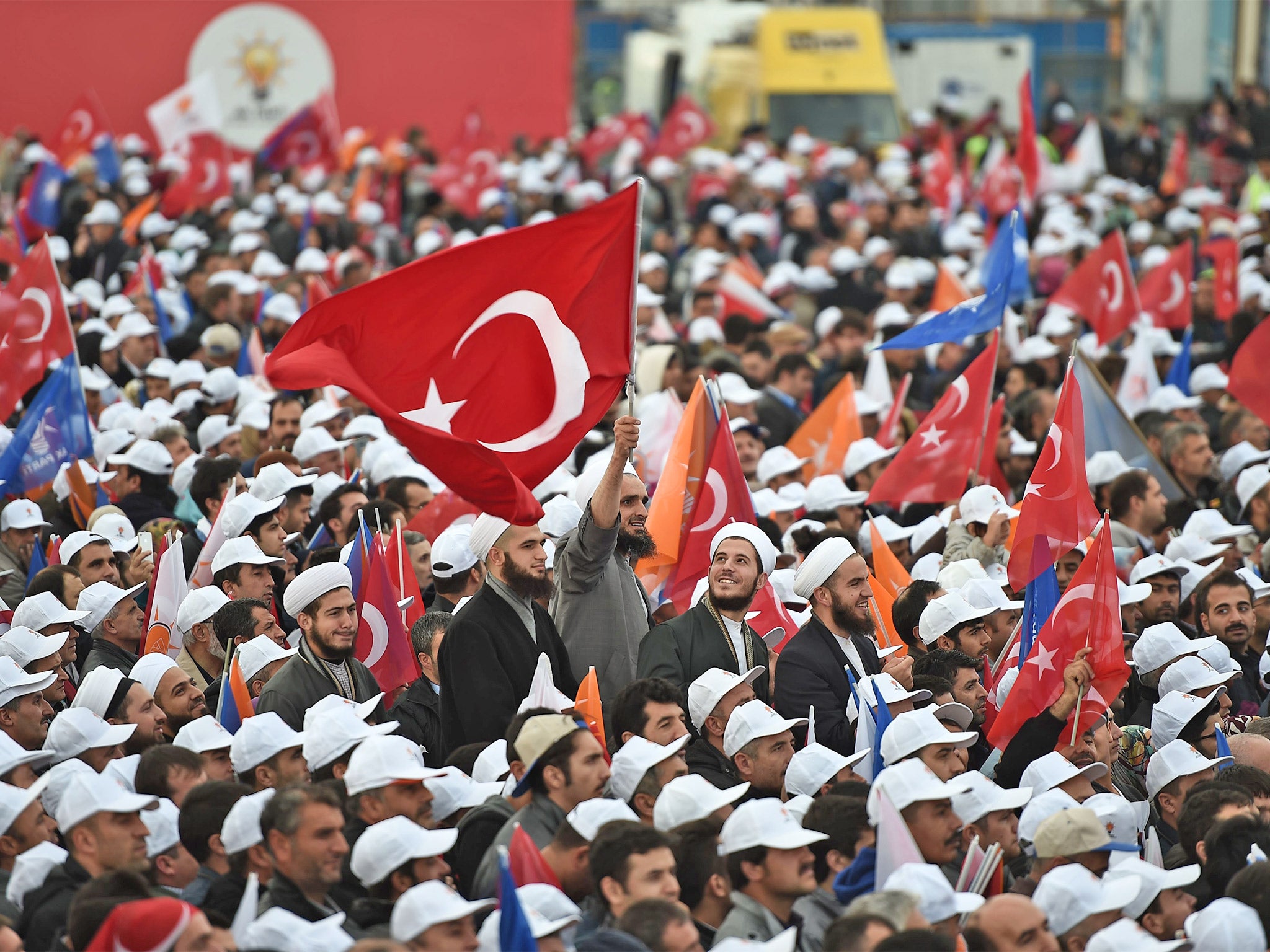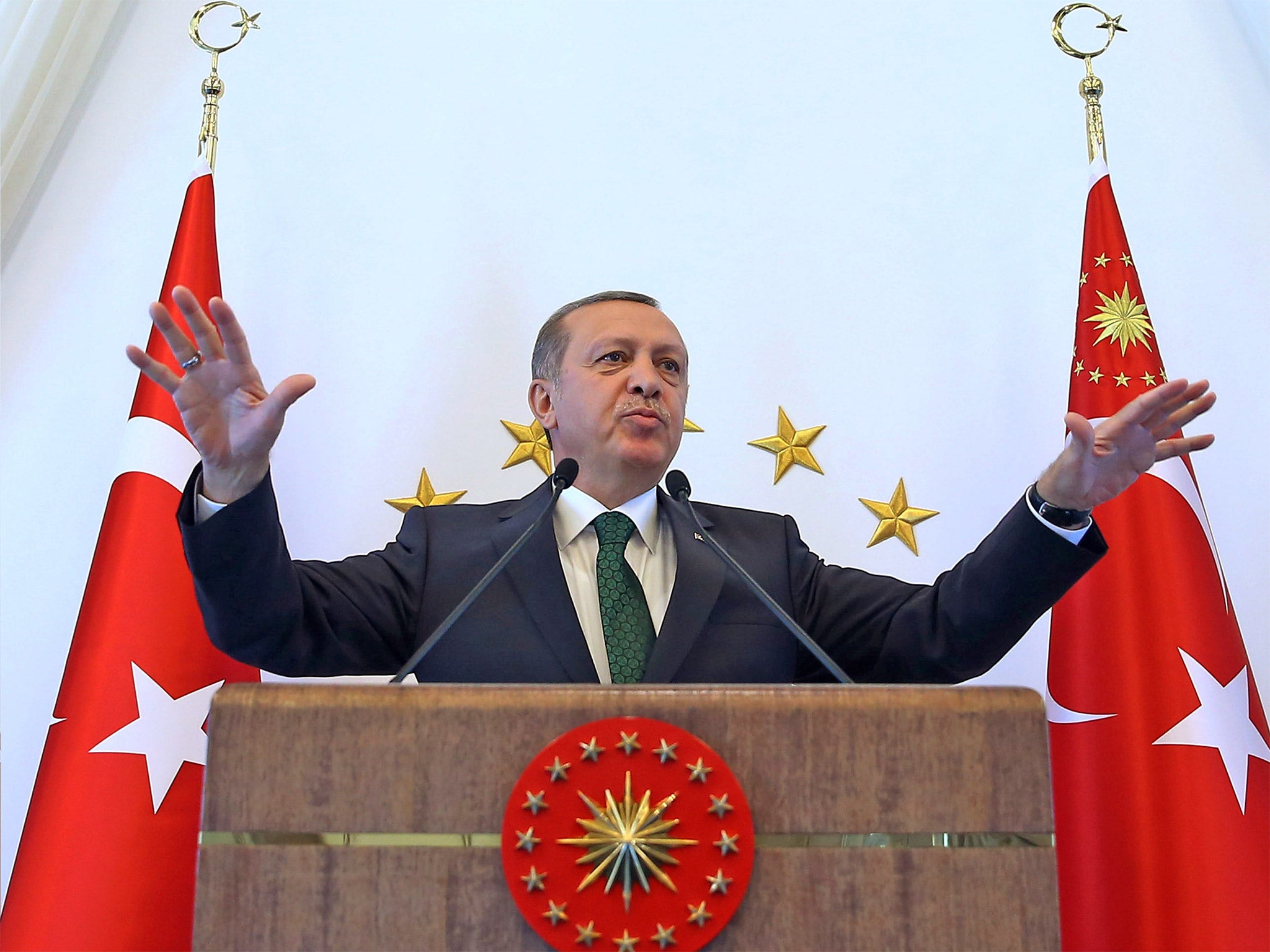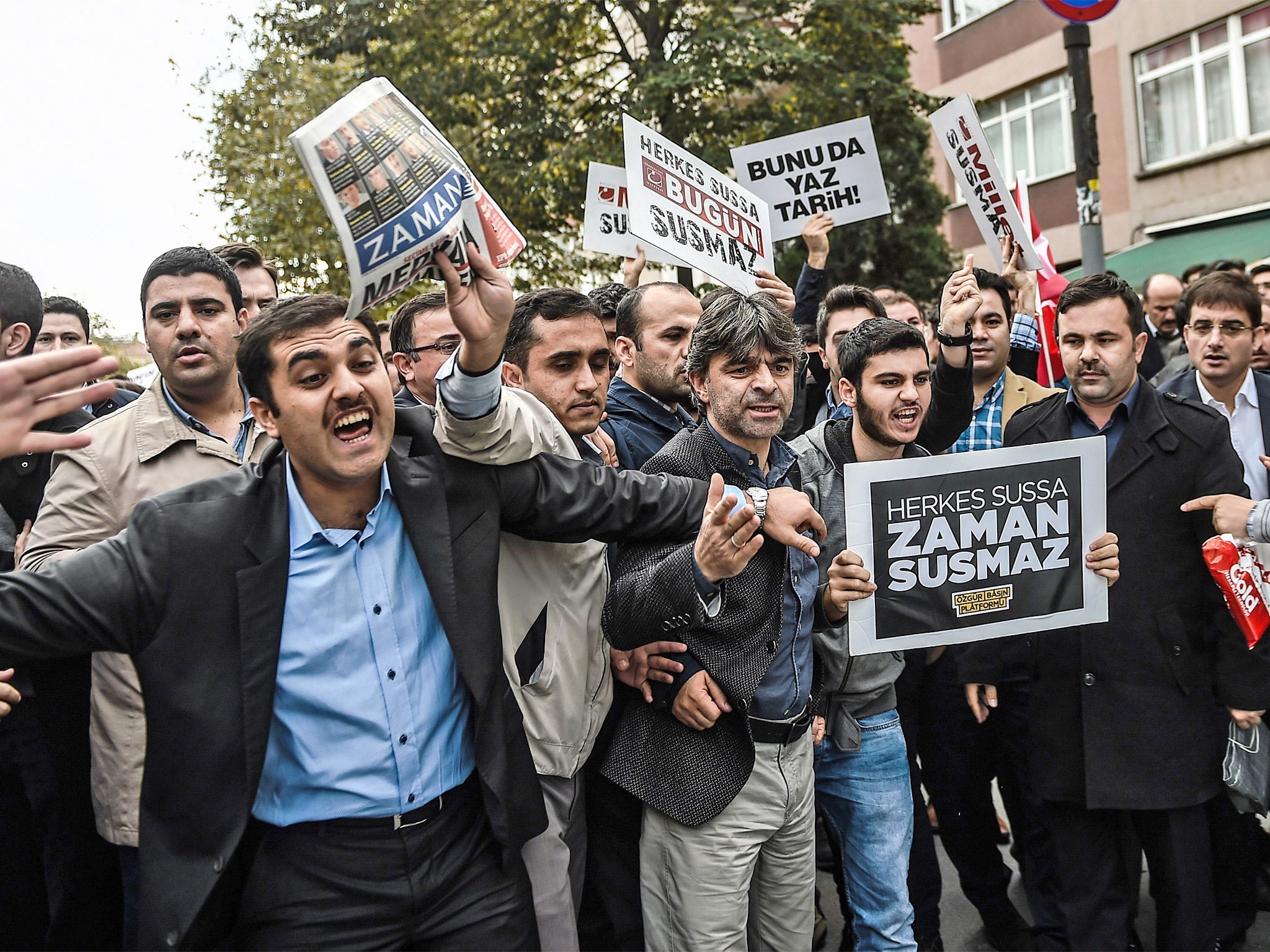Turkey election: Could bitterly divided nation be only a few steps away from a dictatorship?
Fears that if President Erdogan wins a simple majority of 276 seats in the 550-seat parliament, he will establish an authoritarian presidential system

Your support helps us to tell the story
From reproductive rights to climate change to Big Tech, The Independent is on the ground when the story is developing. Whether it's investigating the financials of Elon Musk's pro-Trump PAC or producing our latest documentary, 'The A Word', which shines a light on the American women fighting for reproductive rights, we know how important it is to parse out the facts from the messaging.
At such a critical moment in US history, we need reporters on the ground. Your donation allows us to keep sending journalists to speak to both sides of the story.
The Independent is trusted by Americans across the entire political spectrum. And unlike many other quality news outlets, we choose not to lock Americans out of our reporting and analysis with paywalls. We believe quality journalism should be available to everyone, paid for by those who can afford it.
Your support makes all the difference.Turkey goes to the polls on Sunday in a parliamentary election that threatens to increase polarisation in a country that is already deeply divided.
At stake is the extent to which President Recep Tayyip Erdogan and his Justice and Development Party (AKP), which has ruled Turkey since 2002, can establish one-party rule and near monopoly of political power.
The election is still in the balance, but inside Turkey the campaign has widened the fault lines between Kurds and Turks, secular and Islamic, Sunni majority and Alevi minority. Abroad, the results may determine the degree to which Turkey becomes further embroiled in the civil war in Syria and Iraq.
Many people have put decisions on hold until they know the outcome of the election. Ersin Umut Guler, an actor and theatre director, is waiting to see if it will reduce political tensions, allowing him to bring back the body of his brother Aziz to Turkey from northern Syria where he was killed fighting Isis on 21 September when he stepped on a mine.
The Turkish authorities refused to allow Aziz’s remains to be brought across the Syrian-Turkish border because it denounces the Kurdish opponents of Isis in Syria as “terrorists” linked to the Kurdistan Workers Party (PKK) against whom it has been fighting a guerrilla war since 1984.
“It is like something out of Antigone [who was forbidden to bury the body of her brother killed in battle],” says Mr Guler. “It is an arbitrary decision taken because Turkey’s war with the PKK has started again and they are not allowing any of the bodies back from the Syrian border.” He points out that Aziz was a Turkish citizen and had gone to fight Isis as a member of a socialist group and was not a member of the PKK. Aziz’s father has gone to Syria and is refusing to return to Turkey until he can bring his son’s body with him.

The four-and-a-half-month siege of Kobani and the aftermath of the last general election, on 7 June, have both served to reignite armed conflict between the Turkish state and the Kurdish minority.
Ankara has been appalled to see the rise of a de facto Kurdish statelet in northern Syria and is accused by Kurds of favouring the Isis attack on it.
This has alienated conservative and religious Turkish Kurds, who had previously voted for the AKP but switched to the pro-Kurdish People’s Democratic party (HDP) in the last election. This enabled the party to exceed the 10 per cent of the vote requirement to win representation in parliament and robbed Mr Erdogan and the AKP of their majority for the first time in 13 years.
Relations between the government and the Kurds deteriorated rapidly as Mr Erdogan and AKP leaders repeatedly accused the HDP, which favours a ceasefire, of being a cat’s paw of the PKK.
On 20 July an Isis suicide bomber at Suruc killed 32 young socialists on their way to aid reconstruction at Kobani. After two Turkish policemen were killed in retaliation, the Turkish army and air force resumed attacks on the PKK in south-east Turkey and Iraq.
On 10 October another Isis suicide bombing killed 102 people demonstrating for peace in Ankara in Turkey’s worst terrorist attack. Opposition parties accuse the authorities of not defending them against Isis and have cancelled all pre-election rallies.
The election campaign has been extraordinarily violent with demonstrators attacking HDP offices and opposition newspapers. Murat Yetkin, a leading journalist on the liberal and secular daily Hurriyet, recalls how mobs twice attacked the office of his newspaper in September, smashing all the windows. A columnist was later assaulted and had his nose and ribs broken.
This week workers were constructing sturdier defences in the forecourt of the building, but there is a sense that all institutions critical of Mr Erdogan are under permanent siege.
Mr Yetkin says that polarisation in Turkey is at its zenith with a danger that, if Mr Erdogan wins a simple majority of 276 seats in the 550-seat parliament (the AKP currently has 258 seats), then he will establish an authoritarian presidential system.
Polls show that the four main political parties’ share of the vote has not changed much since the last election in June, with the AKP hovering at just over 40 per cent. This puts it within a few seats of an absolute majority, failing which it might seek a coalition with the more secular Republican People’s Party (CHP) or the far-right Nationalist Action Party (MHP).
But Mr Erdogan has never shown any liking for coalitions or for diluting his own power.
His chances of success may be greater than they look because so many institutions and centres of power, such as the army, judiciary and much of the media, have been tamed and brought under his control.

Only this week in Ankara, police forced their way into the headquarters of the Koza-Ipek Holding company, which owns two newspapers and two television channels, to enforce a court order appointing a panel of trustees.
The AKP has an overwhelming advantage when it comes to campaigning and influencing the electorate. A survey of the state-owned TV channels shows that, over the past 25 days, they have given 30 hours of coverage to the AKP and 29 hours to Mr Erdogan’s activities, while the CHP received five hours, the MHP one hour and 10 minutes, and the HDP 18 minutes.
Mr Erdogan may also benefit from a sense among many voters that the AKP represents stability, even if it involves a shift towards dictatorship, and all the other alternatives mean economically damaging instability and uncertainty.
The Turkish economy no longer produces the spectacular growth seen up to 2012. Well-educated graduates are finding it difficult to get a job or, when they lose their job, to find a new one.
Dilsah Deniz, a woman in her twenties with a degree in international relations, used to work as a manager in a company making weapons, but the sharp decline in the value of the Turkish currency over the past year meant that it could no longer afford to buy raw materials in Europe. Its two factories closed, she lost her job and has been unable to find one since.
She says that many companies have stopped interviewing job applicants until they know the outcome of the election. She hopes that greater stability will improve her chances of employment.
She may be disappointed whatever the election result. The violence that is convulsing Syria and Iraq is spreading to Turkey, and Isis bomb attacks have poisoned relations between Turks and Kurds.
Worse, Turkey’s engagement in Syria has not stopped the creation of a new Kurdish quasi-state stretching along 250 miles of Turkey’s southern frontier, which is today run by the Syrian branch of the PKK.
Turkey, which was poised to be a major power in the Middle East in 2012, has now been all but excluded as an influence in much of the region. A further advance along the border by the Syrian Kurds might lead Ankara to consider direct military intervention.
The result of the election on Sunday is unpredictable, but it has already unleashed or exacerbated powerful divisive forces. Mr Erdogan may want to bring these under control after the election, but he will find it difficult to do so.
Join our commenting forum
Join thought-provoking conversations, follow other Independent readers and see their replies
Comments